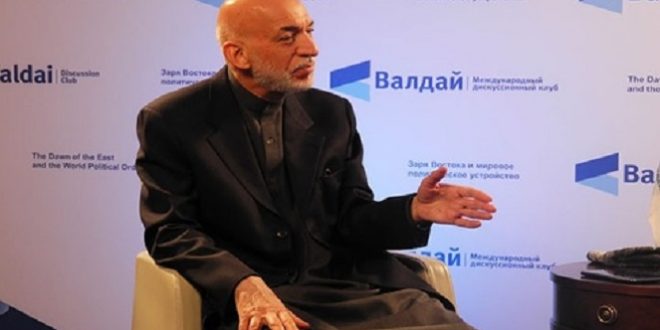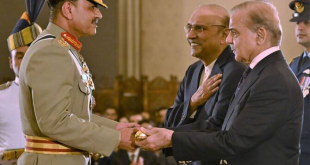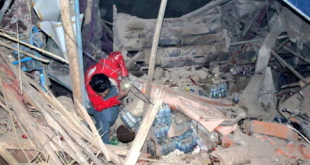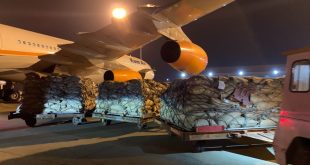This year, we count 30 years from the date of withdrawal of the Soviet troops from Afghanistan. For a generation of Russians, this our southern neighbor [Afghanistan] has been a nightmare — but today it has suddenly become one of Moscow’s main allies on the southern flank. And it remains one of the few countries to recognize the Russian status of Crimea five years ago.
What guided Kabul in this decision — and what is the fate of Soviet prisoners of war, some of whom, according to rumors, still remain in remote regions of Afghanistan?
KP has asked its questions to Hamid Karzai, who served as President of the country from 2004 to 2014. The conversation with the guest from Central Asia took place on the sidelines of the Valdai club — one of the most authoritative discussion platforms in Eurasia, where domestic and foreign experts annually gather to discuss the peaceful transition to a new multipolar world.
Here is complete interview with former President Hamid Karzai with Komsomolskaya Pravda (KP).
CRIMEAN CONSENSUS
— Mr. President, in the spring of 2014, you committed an act after which many Russians looked at Kabul in a completely different way: you recognized Crimea as the part of Russia.
— In the government of Afghanistan, we had made this decision based on two reasons. First — we have historically perceived Crimea as such [the part of Russia]. In the years of the Soviet Union, it was administratively transferred to Ukraine (by the decision of “voluntarist” Khrushchev in 1954-ed.)— but now, with the change of the situation, Russia had every right to “re-claim” its sovereignty over the Peninsula. Western countries, of course, did not support such a decision. But I consulted with colleagues, with the members of our government — and we thought about the second, no less important reason.
— What was it like?
— Russia is our long-standing neighbor, which has historically been involved in difficult Afghan affairs and is now one of the main factors of stability in Afghanistan. We would like to see Russia strong, as Crimea makes it strong. I’m sure it was the right decision on our part.
“AMERICANS could not BRING US PEACE”
— Exactly 18 years ago, on October 7, 2001, the “anti-terrorist operation” of the USA in Afghanistan started. And it lasted for 13 years, most of your presidency. How would you estimate its results?
— That campaign had begun shortly after the terrorist attacks of September 11 (when terrorists, some of whom were hiding in Afghanistan, had planned suicide attacks by Islamists on hijacked planes on objects in the East of the United States, which took the lives of more than three thousand people- ed.). At first, Washington’s counter-terrorism operation received the approval and support of both the international community and the Afghan people. Everyone hoped that Afghanistan would be freed from extremism, which was also bad for our neighbors in Pakistan. At first, thethings really went well, and, by the way, that fight against international terror was an excellent example of cooperation between Russia and the West.
— What went wrong?
— What we found was that the United States, instead of focusing on fighting against extremism, began to bring harm to ordinary people, killing innocent people instead of terror-militants and bringing death to our peaceful homes. Therefore, it is now clear that the United States has been powerless to bring calm and stability. While on our soil, the Americans ignored the centuries-old specifics of Afghanistan and applied incredibly harsh measures to all who were considered them as “aliens”.
“KP” note: in that campaign, up to 30 thousand of common Afghans were killed: from “friendly fire”, mistakes in bombing and punitive operations of the Western coalition (although, honestly, some of these civilians were killed not by the Americans, rather by their opponents-Islamists). Simultaneously, in neighboring Pakistan, NATO drone strikes during 2004-12 have taken more than three thousand lives, or, averagely, one person daily.
“SOME SOVIET PRISONERS FOUND a FAMILY HERE and STAYED”
—There are allegations that the Americans brought you democracy, while our [Soviet] soldier, who came to Afghanistan 40 years ago, in December 1979 — was, on the contrary, an occupier.
— Yes, it is a curious juxtaposition. The American operation was supported by the entire First world, while the Soviet operation was condemned: therefore, from the point of view of the “world community”, the first was absolutely legitimate, and the second was not, and the Afghans had every right to fight with Moscow for their independence.
— Mojahedin.
— Exactly. Yes, many of us at that time perceived the Soviet soldiers as invaders. But at the same time, the USSR, unlike the Americans, was an excellent ally of the then government of Afghanistan, provided huge financial and military assistance. And even after leaving [in 1989], it left Kabul with a powerful Afghan army, thanks to which alone have been resisting the terror-militants for several years. Whereas the Americans, a quarter of a century later, as I have said, made many mistakes on our land.
— Is it true that a number of former Soviet army prisoners are still being forcibly held in remote areas of Afghanistan?
— I remember the last days of the Soviet presence in Afghanistan, when many of such prisoners were released and returned home. Some of them, however, have found families here and preferred to stay (some converted to Islam, and some, as you know, have roots from the Muslim regions of the USSR). Such people stay here voluntarily, have long received our passports and are our legal citizens. As for those prisoners who expressed a desire to return home, to Russia and other countries of the former USSR — the task of the government and the people of Afghanistan has always been to give them full support and provide maximum security.
— I’m sorry, I don’t quite understand: has the problem of returning our prisoners of war been solved completely — or hasn’t?
— I have read of only a few cases, perhaps one or two, of these people who until recent time were in northeastern Afghanistan. But now there are no Soviet prisoners in our country, and the few who remain, I repeat, stay here of their own will.
“VISAS for RUSSIANS can be CANCELED”
—Recently the situation has been aggravatedamong your neighbors, in the Indian Muslim state of Kashmir — in view of Delhi’s attempts to abolish its autonomy.
— We perceive this act of the government of India as its right to carry out its internal affairs. But at the same time, we would not want the civil rights of Kashmiris to be threatened. We are confident that the Kashmiri leaders who are now imprisoned because of their views (such as 81-year-old Dr. Farouk Abdullah, who represented the territory in the Indian Parliament and, despite his parliamentary status, had been sent under arrest) — will be as free as the rest of the Indians.
— Returning to the Afghan affairs, do you see an opportunity for the Taliban (which many consider a terrorist organization) to join your Parliament and government in the near future, having become one of the legal players in the political field?
— Yes, absolutely. They represent Afghans in the same way; they grow, from the same soil as we do. It is therefore highly desirable that the Taliban would become a full part of the government, society and economy of Afghanistan. And we hope that Russia, the United States and China will join hands to continue peace talks with the Taliban and other intra-Afghan players, so that a lasting peace can come to our land.
— And in some parts of Afghanistan peace has already come. Many of my colleagues, for example, RT journalist Ekaterina Vinokurova, dream to visit it as tourists. Do you think it is possible to cancel visas for Russians?
— We are always happy to see Russians in Afghanistan, our countries are very close, and our cultures have a connection since ancient times. Both we and you have beautiful sight-seeing places. So the idea to develop mutual tourism is very good. But first, the Afghan people would like Russia to help bring peace to their land.
— How?
— You have already done a lot — for example, over the past two years, three rounds of intra-Afghan talks between official Kabul and the Taliban have been held in Moscow, which, we hope, will bring us stability. And we would like Russia to continue this negotiation process. In the future, this will make Afghanistan an important member of the collective security system in Central Asia and the SCO (Shanghai cooperation organization; unites almost all major Asian countries, including Russia, China and India, for a joint fight against terror and other forms of partnership — approx. ed.)
— Thank you, Mr. President. There were many very different pages of history between Russia and Afghanistan — but now we are ready to open a completely new one.
— Not just ‘ready’ — it is already opened and Russia is a fundamental pillar of stability for Afghanistan.
 Afghanistan Times Latest News and Analysis from Afghanistan and the Region
Afghanistan Times Latest News and Analysis from Afghanistan and the Region




